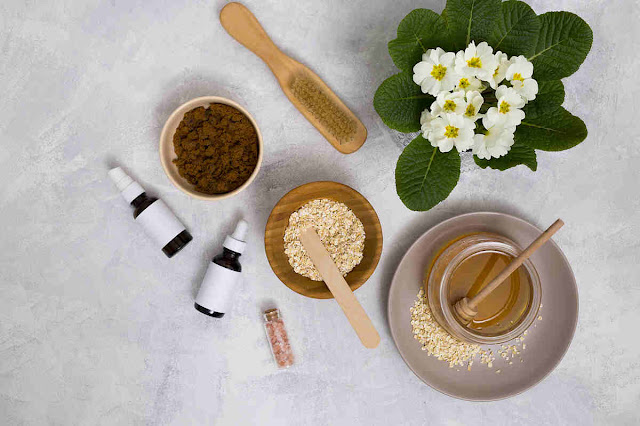Herbal Supplements for Immune System Health
Maintaining a robust immune system is essential for protecting the body from infections, illnesses, and diseases. While a balanced diet, regular exercise, and sufficient sleep are the foundation of good health, herbal supplements can provide an additional boost to the immune system. These natural remedies, derived from plants, have been used for centuries in various traditional medicinal practices. Let’s explore some of the best herbal supplements for enhancing immunity, their benefits, and frequently asked questions about their use.
Top Herbal Supplements for Immune System Support
Echinacea
Echinacea is one of the most popular herbal supplements for immune health. Known for its anti-inflammatory and antioxidant properties, this herb helps combat colds, flu, and other infections. Echinacea can be taken in various forms, such as capsules, tinctures, or teas.
Elderberry
Elderberries are rich in antioxidants and vitamins that help strengthen the immune system. This herbal remedy is especially effective during flu season, as it can reduce the severity and duration of colds and flu symptoms.
Astragalus
Astragalus has been a staple in traditional Chinese medicine for centuries. It is known to enhance the immune system by increasing white blood cell production. Astragalus also has antiviral and anti-inflammatory properties that make it a valuable immune-boosting herb.
Turmeric
Turmeric contains curcumin, a powerful compound with anti-inflammatory and antioxidant benefits. While primarily known for supporting joint health, turmeric also plays a vital role in boosting immunity by reducing inflammation in the body.
Garlic
Garlic is a natural antimicrobial and antiviral herb. Regular consumption can enhance immune function and help fight off infections. Garlic supplements are available for those who prefer not to consume raw garlic.
Green Tea Extract
Green tea contains catechins, which are powerful antioxidants that support the immune system. It is also known for its antiviral and antibacterial properties, making it an excellent addition to your daily health regimen.
Andrographis
Known as the “King of Bitters,” Andrographis is a powerful herb for fighting infections and boosting immunity. It is commonly used to reduce symptoms of respiratory infections and shorten their duration.
Benefits of Herbal Supplements for Immunity
Natural Antioxidants: Many herbs are rich in antioxidants, which protect cells from damage caused by free radicals.
Anti-Inflammatory Properties: Herbs like turmeric and ginger help reduce inflammation, a key factor in maintaining a healthy immune system.
Antiviral and Antibacterial Effects: Herbs such as garlic and elderberry are effective in fighting viruses and bacteria.
Adaptogenic Support: Herbs like astragalus help the body adapt to stress, which can otherwise weaken the immune system.
Seasonal Support: Herbal supplements can provide extra protection during cold and flu season.
Tips for Using Herbal Supplements
Consult a Healthcare Professional: Before starting any new supplement, consult your doctor, especially if you are pregnant, nursing, or taking medications.
Follow Recommended Dosages: Taking too much of an herbal supplement can lead to adverse effects.
Choose High-Quality Products: Look for supplements that are third-party tested to ensure purity and potency.
Combine with a Healthy Lifestyle: Herbal supplements work best when combined with a nutritious diet, regular exercise, and adequate sleep.
Conclusion
Herbal supplements can be a valuable addition to your wellness routine, offering natural support for a strong immune system. By choosing the right herbs, following recommended dosages, and integrating them into a healthy lifestyle, you can harness the power of nature to boost your immunity. Whether you’re looking for seasonal protection or year-round support, these herbal remedies are a testament to the enduring benefits of traditional medicine.
8 FAQs About Herbal Supplements for Immunity
Are herbal supplements safe for everyone?
While most herbal supplements are safe, certain groups, such as pregnant women, breastfeeding mothers, and individuals with chronic conditions, should consult a doctor before use.Can herbal supplements replace vaccines or medications?
No, herbal supplements are not a substitute for vaccines or prescribed medications. They should be used as a complementary approach to overall health.How long does it take for herbal supplements to work?
The time varies depending on the herb and the individual. Some herbs, like garlic, may provide immediate benefits, while others, like astragalus, may take weeks of consistent use.Are there any side effects of herbal supplements?
Possible side effects include digestive upset, allergic reactions, or interactions with medications. Always start with a small dose to monitor your body’s response.Can I take multiple herbal supplements at once?
Yes, but ensure they do not have conflicting effects or interactions. Consult a healthcare provider for personalized advice.What is the best way to take herbal supplements?
Supplements are available in various forms, including capsules, tinctures, teas, and powders. Choose the form that fits your lifestyle and preferences.Are there any herbs to avoid for immune health?
Some herbs may suppress immune function or cause side effects if taken excessively. Examples include echinacea for those with autoimmune conditions and licorice for those with high blood pressure.Can children take herbal supplements for immunity?
Some herbal supplements, like elderberry, are safe for children when given in appropriate doses. Always consult a pediatrician before administering supplements to children.




